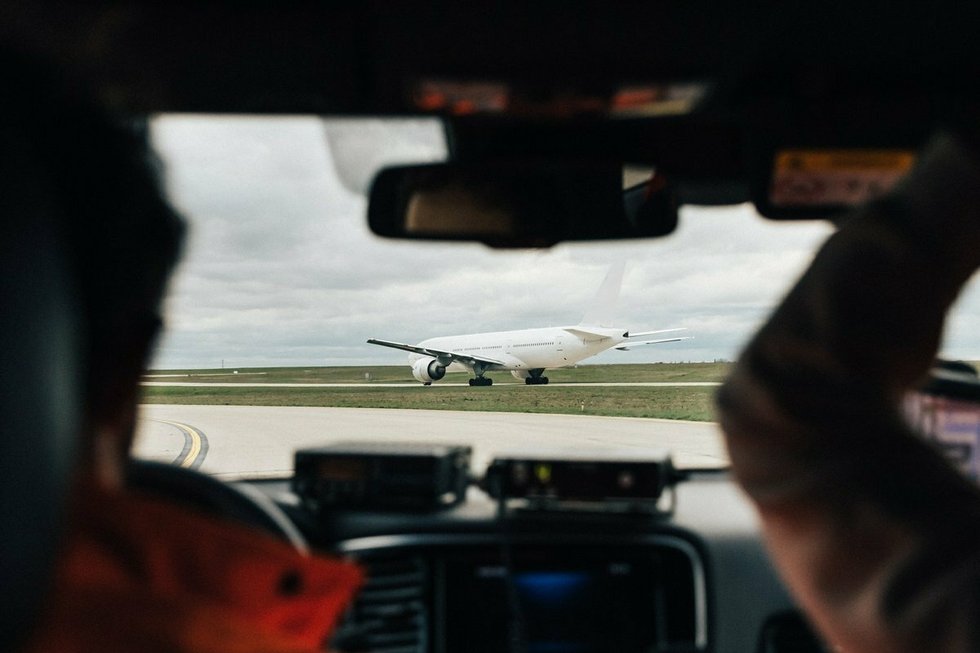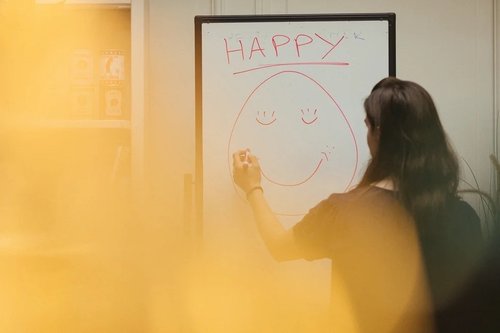The moral burden of working for and with polluting industries
Mar 01, 2021
6 mins


Journalist
All Todd Smith ever wanted to do from the age of five was to fly airplanes. “When my dad took me to watch the Red Arrows on display for the first time, my heart was set on becoming a pilot,” he said. After graduation, Smith worked as a flight instructor and a pilot for a Bulgarian airline before landing a job with Thomas Cook Airlines. He seemed to have found his dream job. But today, the 32-year-old no longer wants to work in aviation.
Smith is part of a growing cohort employed by heavy carbon emitters who have trouble reconciling their concern for the environment with the nature of their work. As global concern about the climate crisis increases, jobs in oil, gas and other polluting industries, once perceived as lucrative and prestigious, are losing their appeal. A recent Deloitte Insights report cites one of the biggest issues for the industry as “retaining top employees and tackling the challenge of an aging workforce”.
The moral conflict
Aviation accounts for 2.5% of global carbon dioxide (CO₂) emissions, but it is the fastest-growing source: if global aviation were a country, it would rank in the top 10 emitters. Smith became more aware of his job’s carbon footprint when, after flying with Thomas Cook for nearly two years, he got his medical revoked due to illness.
“I discovered my love for the planet…” - Todd Smith
He spent his first year traveling the world. He went to Peru and saw Rainbow Mountain, its colorful rocks discovered only after global warming melted the snow; he was struck by the effect of mass tourism in South-East Asia and the landscapes devastated by palm oil plantations. “I discovered my love for the planet then,” he said. However, Smith became climate aware thanks to Extinction Rebellion protests. “The first protest I did was at Trafalgar Square, where we laid down children’s shoes for the lives of children that will be lost due to climate change.”
In early 2020, Smith faced a tough decision: become an activist and risk his career or go back to work. He realized that he wasn’t able to reconcile his professional life and his personal views. “I will get my medical back this year, but I can no longer be a part of that industry,” he said. “I would not consider going back…except if we keep [global] warming under 1.5C [the aspirational target set by the Paris Agreement] and if world leaders start treating the climate crisis as an emergency.”
“…climate change, the idea of an existential threat to the planet, was beyond my understanding.” - Neil Rothnie
Neil Rothnie, 68, only realized the true implications of climate change after he retired. He spent his entire career in the oil industry working as a mud engineer, who manages the fluids used in drilling oil wells. “I started in 1972 when I was a student and when the oil boom started. I am from the northeast of Scotland, and it was quite normal for a student from there to want to be involved in this huge, growing industry. It was sexy, it was adventurous, it was everything a young mind might find attractive,” he said.
Rothnie, who now lives in Glasgow, says he became aware of the environmental issues caused by the industry quite early on while working in drilling, but attitudes were different back then. “We dropped amazing amounts of chemicals into the North Sea […] But climate change, the idea of an existential threat to the planet, was beyond my understanding. At some point, I guess, I knew there was such a thing as global warming and that fossil fuels were a cause, but I just didn’t give it too much thought,” he said.
After he retired, in 2015, climate change started to really hit the headlines and in 2018, Extinction Rebellion was born. “I remember their very first demonstration when they blocked the bridges in London. I come from a trade union movement, and I started becoming interested in them when I saw they were prepared to shut the streets and disrupt daily life. Next thing, I remember reading their info leaflets, then going to the meetings.”
Thinking about the next generation
“I will see my life out. But I have a close relationship with my first granddaughter, and I can see that her whole life coincides with the climate change discourse.” - Neil Rothnie
Looking back at his career, Rothnie says, “I’d love to have been a bit smarter, I wish I had done different things, and known more.” Today, he is an active member of the climate movement—he attends rallies, gives speeches at demonstrations, and challenges the industry and governmental policies in the media.
He doesn’t do it for himself, but for his children, his grandchildren and younger generations. “I will see my life out. But I have a close relationship with my first granddaughter, and I can see that her whole life coincides with the climate change discourse,” he said.
Smith shares his concern about future generations. The former pilot, who now lives in Reading, wants to start a family someday. He believes that it would be hypocritical to still work in aviation and expect his children to live a sustainable life in the future. “I have a young nephew, and I will need to justify myself to him one day,” he said.
Social pressure and lack of acceptance
“There were protests in front of the offices of the company I work for, and when I was going to work, I recognized some of the people I marched with just a year ago.” - Antoine
Not everyone feels conflicted about working for big oil. Antoine, 25, who works for a French oil and gas company, believes that he can drive the change towards a sustainable future from within the industry.
Antoine grew up in rural southeast France and has always felt attached to nature. “My dream has always been to become an engineer like my cousins, and since I was ten, I knew I would specialize in renewables,” he said. After graduating in Paris, Antoine got an internship and then a job working for an oil and gas giant in the renewables department.
“During my internship and even earlier, during my studies, I was volunteering with associations fighting for the climate. I was learning a lot about climate change. At some point, I was at the crossroads, wondering if I was going to put pressure on society as a citizen or if I could be a part of the solution from within [the industry],” he said.
These two parts of his life sometimes collide. “There were protests in front of the offices of the company I work for, and when I was going to work, I recognized some of the people I marched with just a year ago.”
Antoine usually tries to be open about his employer and his job. “Sometimes people tell me, ‘OMG, you are working in an oil and gas company, how can you live with yourself!’ But they are riding SUVs or smoking cigarettes or they’ll say that while eating a steak. There is no consistency in their words,” he said. “People are usually surprised when they hear that the company I am working for is investing in and working with renewables.”
Dealing with cognitive dissonance
According to Antoine, there’s a real desire within his company to fully engage in the energy transition. However, he admits that he would feel conflicted if one day he had to work in the oil and gas unit. “I don’t think I am driven by money, I don’t believe that I would choose that option to advance my career or earn more… but you never know what tomorrow brings,” he said.
In the meantime, Antoine is trying to live a more sustainable life: he cycles to work, he has reduced his meat consumption and he “not the person who changes his phone once a year”. But he believes that it will take time for the industry to transition. “Many people will lose their jobs as companies like mine are switching to more sustainable energy sources. Moreover, we all live in the consumerist era. If we remained without oil overnight, there would be no food in the supermarkets,” said Antoine.
Smith and Rothnie believe there is no time for such a slow transition. Besides turning his back on the aviation industry, Smith has become a vegan and is a spokesperson for Extinction Rebellion. He candidly speaks about aviation’s carbon footprint, although this has made him unpopular among former colleagues. He is also considering starting an NGO and possibly opening an animal sanctuary.
Rothnie stages climate protests and doesn’t shy away from criticizing the industry that formed his career. However, he is worried that people still don’t realize how the fossil fuel industry is destroying the planet. “It would actually be great if people were shaming me, telling me—’Hey, you were one of the guys that caused this problem!’ But I feel I have not had much grief,” he said. “When people start telling me things like that, we will reach the moment when we begin to understand the threat over people’s heads. That will not be pleasant for me, but it will be good for the climate.”
Photo: Welcome to the Jungle
Follow Welcome to the Jungle on Facebook, LinkedIn, and Instagram, and subscribe to our newsletter to get our latest articles every day!

More inspiration: Our relationship with work

Advice for people pleasers: Breaking free from being “too nice” at work
Do you often say things like, "Yeah, sure, I can do that!" when in fact you don't have the bandwidth to do that? We've got you.
Dec 12, 2024

There’s no place like home: Does relocation hurt productivity?
Relocating often brings homesickness, but it’s part of the journey. Here’s how to embrace the change and make the most of it.
Oct 22, 2024

Should you take your office crush to the next level?
Is an office crush worth the risk, or more damaging to your career and reputation than you think?
Oct 09, 2024

Young workers on unpaid internships: Was it worth it?
While internships build skills and connections, unpaid ones can limit opportunities for those who can't work for free. Is it fair?
Sep 12, 2024

Sleeping less to succeed more: Do CEOs sleep as little as we think?
In today's fast-paced corporate world, a common belief is that successful leaders, particularly CEOs, need less sleep to achieve their goals.
Aug 26, 2024
The newsletter that does the job
Want to keep up with the latest articles? Twice a week you can receive stories, jobs, and tips in your inbox.

Looking for your next job?
Over 200,000 people have found a job with Welcome to the Jungle.
Explore jobs